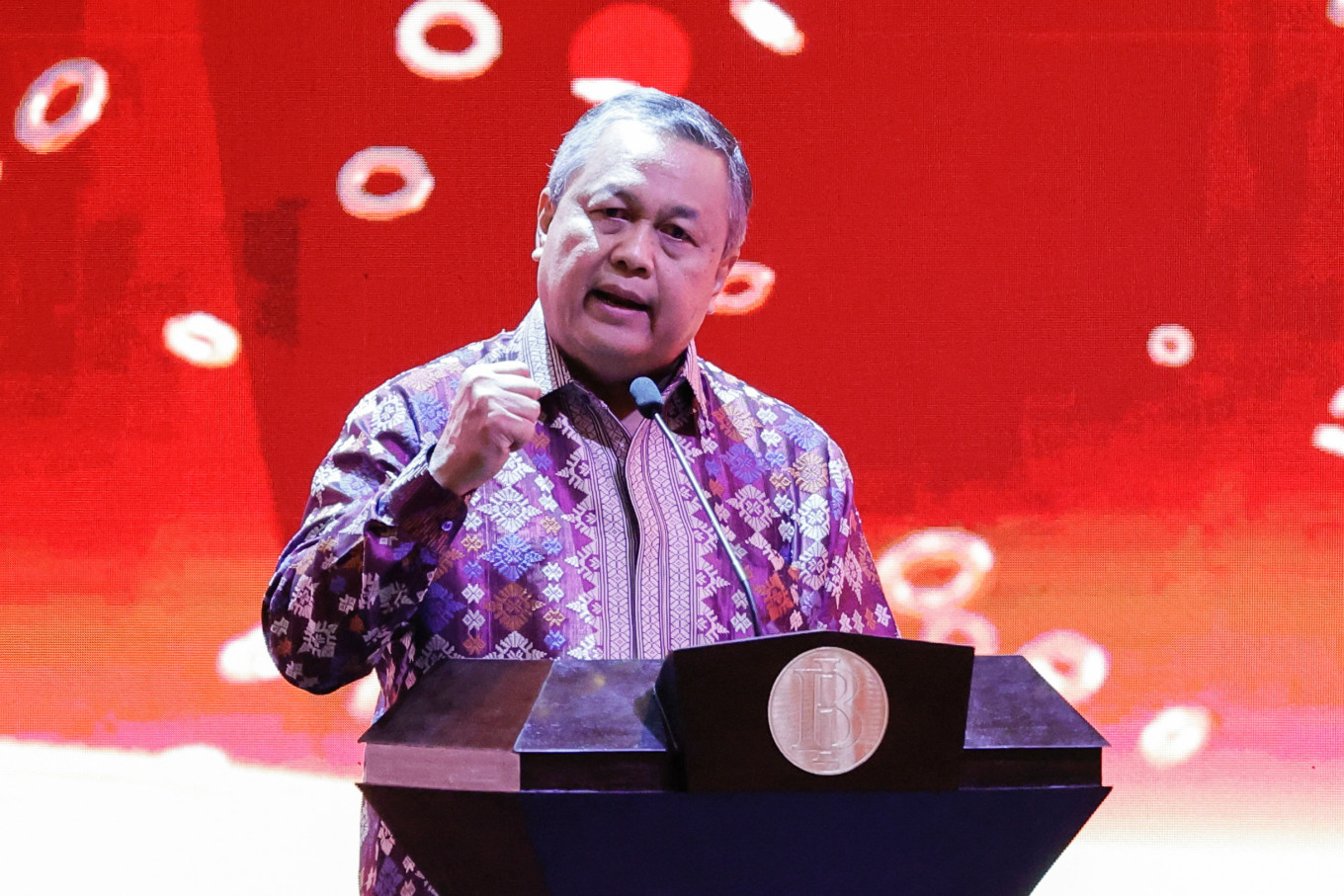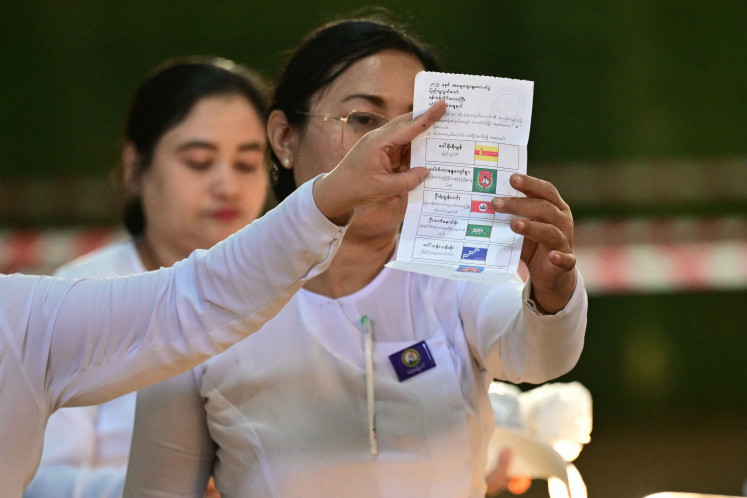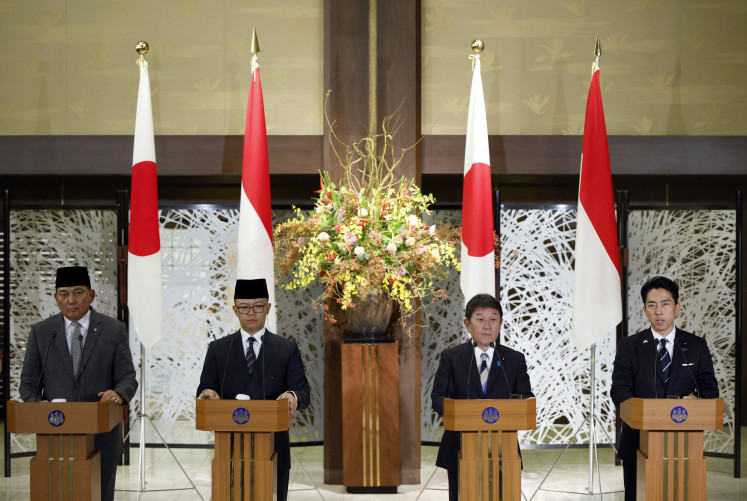Popular Reads
Top Results
Can't find what you're looking for?
View all search resultsPopular Reads
Top Results
Can't find what you're looking for?
View all search resultsDon’t change a winning team
The close synergy between the government’s fiscal policy and Bank Indonesia’s monetary policy contributed to Indonesia's resilience and outstanding robust economic performance during the peak of the pandemic.
Change text size
Gift Premium Articles
to Anyone
W
hy change a winning macroeconomic management team? That is the rational and wise message from President Joko “Jokowi” Widodo’s nomination to the House of Representatives for a second term in 2023-2028 of Bank Indonesia Governor Perry Warjiyo. The immediately positive response from the House Budget Committee to the single candidate also clearly indicates a smooth political approval for the incumbent BI governor within the next few weeks.
The close synergy between the government’s fiscal policy and BI’s monetary policy and the windfall revenues from the commodity boom in 2021 and 2022 were indeed the strongest pillars of Indonesia’s resilience and outstanding robust economic performance during the peak of the pandemic in 2020 and 2021.The strong revival from the global shocks in 2022 with a growth of 5.3 percent, the highest since 2014, made the country a beacon amid the global turmoil.
Indonesia was able to weather the devastating impact of the energy and food crises and spiraling inflation since 2022 caused by the Russian invasion of Ukraine in February because the government could enormously expand the social assistance program and provide fuel subsidies to cushion the people from the inflationary impact of the global shocks. The strong cooperation and good understanding between Perry and Finance Minister Sri Mulyani Indrawati and the government-BI burden sharing for financing the state budget have enabled the government to maintain a manageable fiscal deficit.
The fairly low inflation rate that has been kept below 5 percent, compared with the skyrocketing consumer price indexes of as high as 9 percent in many advanced countries, in turn enabled BI to hold its benchmark interest rate at 3.5 percent in the first seven months of 2022 to maintain the pace of the post-pandemic recovery, despite the aggressive monetary tightening around the world. BI began gradually raising its policy rate only in August 2022 to as high as 5.75 percent at present even though the United States Federal Reserve had started hiking its policy rate in February 2022 from almost zero to a range of 4.5-4.75 now.
BI certainly has to gradually increase its policy rate to check inflation amid the strong economic recovery and to maintain a reasonable high interest rate margin with the US funds rate to prevent capital outflows and help maintain the rupiah exchange rate stability.
So impressed has been the government and the House with the strong synergy between the fiscal and monetary authorities that the legal foundation of the BI-government burden sharing is further strengthened in the Law on the Development and Strengthening of the Financial Sector, enacted last year. This law also stipulates a new duty for BI, which is to support economic growth, in addition to its previous two basic tasks of only controlling inflation and maintaining the rupiah exchange rate stability.
The step-by step procedural guidelines for the burden-sharing arrangement stipulated in the law contain such stringent safeguards that the risk of BI compromising its independence is almost nil. BI can purchase government bonds in the primary market only during a time of crisis and only upon the decision of the Financial Stability System Committee (KSSK), which consists of the finance minister, the BI governor, the chiefs of the Financial Services Authority and the Deposit Insurance Corporation. Except for the finance minister, the other members of the KSSK are selected by the House. Moreover, the President can declare a time of financial crisis only upon the recommendation of the KSSK.
The challenge ahead for the monetary management is that the era of low-cost funds has demonstrably ended, especially after the Fed signaled that it could fire another rate hike this year from the prevailing range of 4.5-4.75 percent now to bring inflation down to 2 percent. Another risk to the economy is that the fiscal authority can no longer expect windfall profits from commodities markets, as the boom appears set to end amid escalating concerns over economic slowdown.











